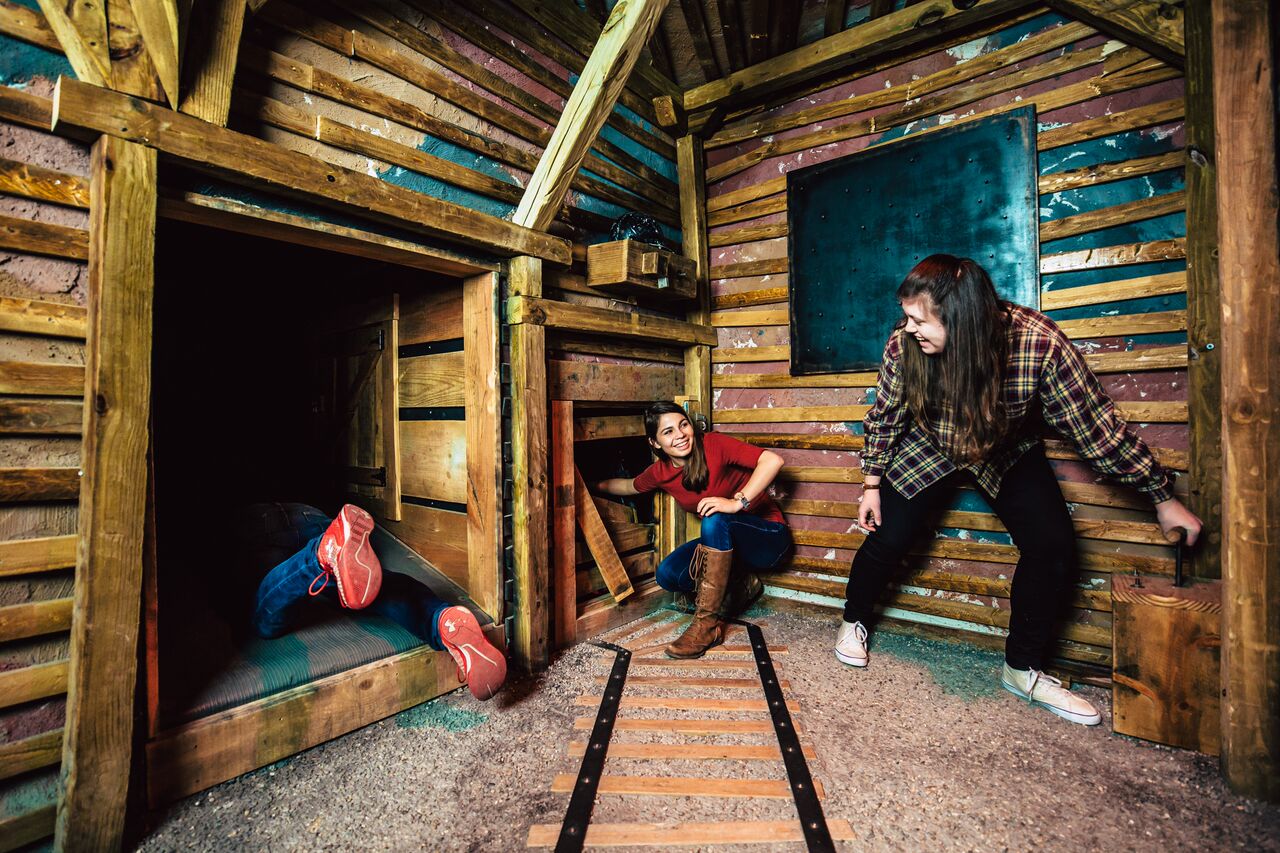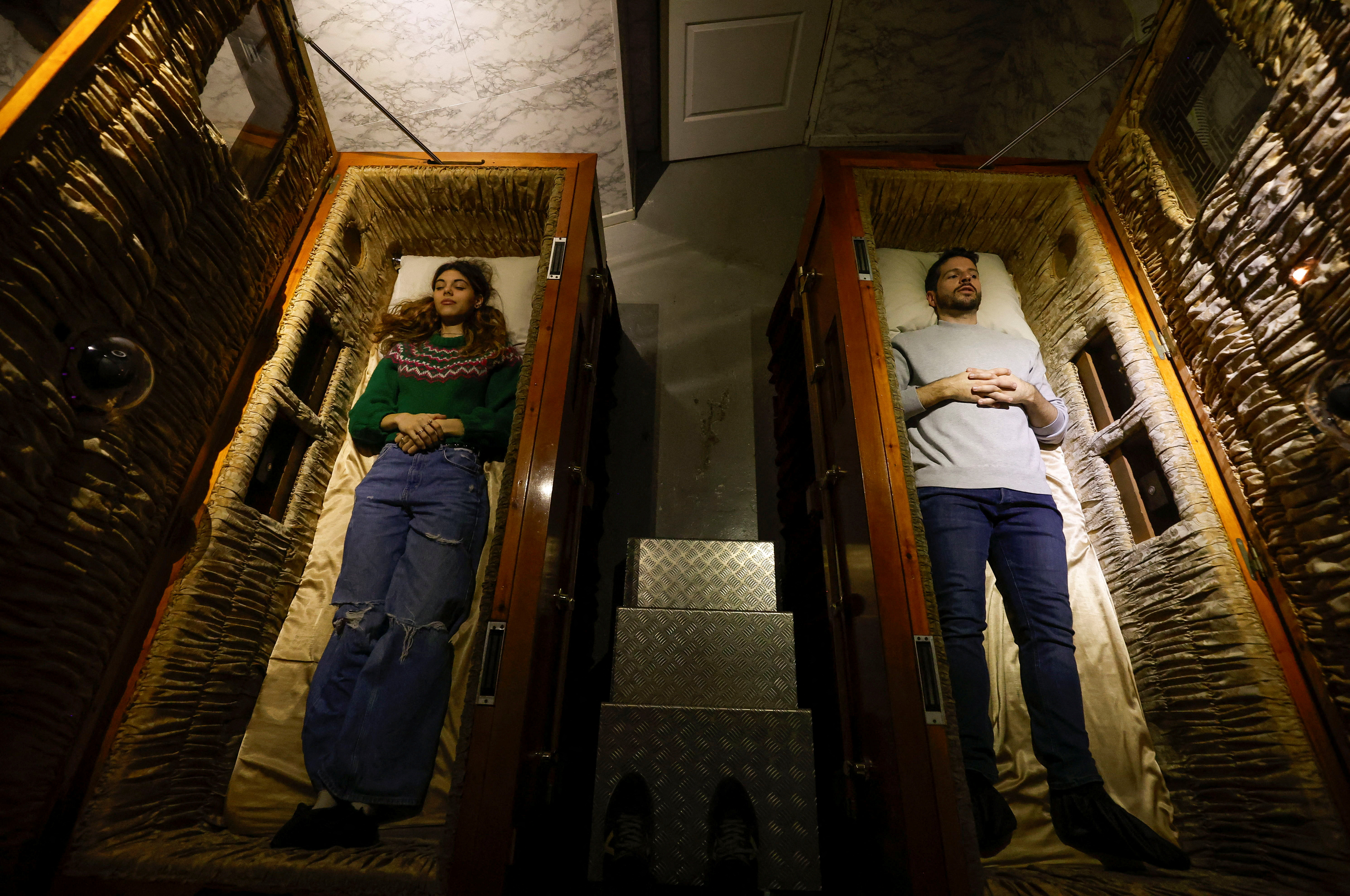Study a Globe of Experience and Problem-Solving in Escape Rooms
Escape spaces have surged in appeal, providing an one-of-a-kind blend of adventure and cognitive difficulty that astounds individuals of all ages. From unraveling elaborate historical enigmas to browsing eerie, spine-chilling scenarios, each space offers a distinctive story that evaluates your problem-solving acumen. Whether you're a seasoned fanatic or an interested newcomer, the allure of these immersive challenges beckons.
The Rise of Escape Rooms
Escape rooms have seen a substantial rise in popularity over the previous decade, changing from particular niche entertainment to a mainstream sensation. Originating in Japan around 2007, these interactive problem video games rapidly astounded target markets worldwide. The immersive experience of being "secured" in a room and working collaboratively to fix puzzles within a set duration offers a special mix of excitement and cognitive difficulty.
The rise of getaway areas can be attributed to several elements. The interactive nature of escape spaces supplies a tangible contrast to the virtual escapism prevalent in electronic gaming.
Furthermore, the social element can not be overlooked. Retreat areas foster cooperation and interaction, motivating participants to merge their skills and understanding. This collective initiative not only boosts the experience but likewise constructs friendship amongst players. Additionally, the continuous advancement of challenge layout and technological combination makes sure that getaway areas remain difficult and fresh, adding to their sustained popularity.
Kinds Of Escape Room Motifs

One prevalent motif is the "Mystery and Investigative" style, where individuals represent investigatives entrusted with resolving a crime or revealing a concealed reality. These areas often feature complex challenges and narrative-driven challenges that require eager monitoring and rational reasoning.
Another popular style is "Historic and Journey". Here, players may discover themselves in old Egypt, navigating with a pharaoh's tomb, or throughout The Second World War, deciphering opponent messages. These styles offer an instructional twist, blending historical truths with appealing gameplay.
For those seeking an excitement, "Horror and Paranormal" retreat spaces provide spine-chilling experiences. Establish in haunted residences or abandoned asylums, these rooms depend on climatic effects and emotional scares to increase the tension.
Key Skills for Success
Success in getaway areas hinges on a mix of critical abilities that participants have to harness to get over the varied difficulties they will certainly come across. Similarly vital is synergy; getaway spaces require a joint effort, where each individual's strengths are used to take on various challenges and tasks successfully.
Analytical reasoning is likewise crucial, enabling groups to study intricate puzzles and develop rational links in between diverse components within the room. Time monitoring is a more important, as the repaired period of getaway area experiences demands reliable allowance of time to different tasks and challenges.
Versatility and flexibility need to not be neglected. When preliminary plans fail makes sure that groups can dynamically respond to progressing obstacles, the capability to pivot methods. Maintaining a tranquil demeanor under stress help in clear reasoning and stops the onset of stress-induced errors. Mastery of these skills jointly improves the likelihood of a successful escape.
The Psychology of Problem-Solving
Understanding the psychology find of problem-solving is critical for navigating the elaborate obstacles presented by retreat areas. Problem-solving is a cognitive procedure that entails recognizing a trouble, producing possible options, evaluating them, and afterwards executing the very best strategy. Cognitive psychologists have long researched this procedure, determining various phases such as issue recognition, structuring the trouble, and making use of heuristics or formulas to locate options.
Escape rooms develop an environment where participants must promptly move via these cognitive phases under pressure. The high-stakes, time-constrained nature of getaway areas can induce a state of enhanced arousal, which can either enhance or impair cognitive a knockout post performance depending upon the individual's stress and anxiety response. The Yerkes-Dodson Legislation recommends that moderate stress levels can enhance problem-solving capacities, whereas extreme stress and anxiety can be harmful.
Additionally, retreat rooms typically call for collaborative analytic, leveraging group characteristics to enhance cognitive processes. Understanding these mental concepts can substantially boost one's ability to fix complex challenges efficiently.
Tips for First-Timers
Beginning on your very first retreat space journey can be both difficult and awesome. The even more varied the ability collection, the better equipped you'll be to take on various types of challenges.
Interaction within the group is critical. Share findings and understandings promptly, as one individual's exploration might be the missing piece another requirements. Avoid one-track mind; if a puzzle appears insurmountable, pass it on to a teammate to gain a fresh perspective.
Time monitoring is also essential. Watch on the clock and allot your time carefully. It might be sensible to relocate on and return to it later on. if a specific puzzle is taking in as well much time.

Conclusion
Getaway rooms provide a special mix of journey, cognitive challenge, and immersive narration, making them a preferred option for both enjoyment and ability advancement. By involving in complicated problems and varied motifs, participants enhance team effort, interaction, and analytic abilities. The mental benefits gained from these experiences prolong past the escape area, cultivating improved social abilities and cognitive functions. Accept the world of escape areas to cultivate essential reasoning and create enduring, collaborative memories.
The continuous development of puzzle layout and technical integration makes sure that retreat spaces remain challenging and fresh, adding to their sustained appeal. - best escape room
Similarly vital is teamwork; getaway spaces require a joint initiative, where each individual's strengths are made use of to deal with numerous puzzles and jobs effectively.
Time administration is a further vital, as the fixed period of getaway space experiences necessitates reliable allocation of time to various tasks and puzzles.
Comprehending the psychology of analytic is essential for browsing the detailed difficulties presented by escape rooms.Additionally, getaway areas view it commonly call for joint analytic, leveraging team characteristics to boost cognitive processes.